Did you know that Togo, a small yet vibrant country in West Africa, is home to over 40 ethnic groups and a rich cultural heritage? This makes it a unique destination for any traveler seeking authenticity and adventure.
From bustling markets in Lomé, the capital city, to serene beaches along the coast, Togo offers a mix of experiences. However, navigating the local currency and payment methods can be a challenge if you’re unprepared.
The CFA Franc is the official currency here, and while cards are accepted in some areas, cash remains a necessity for markets, local spots, and emergencies. Knowing how to handle money wisely can make your trip smoother and more enjoyable.
This guide provides essential insights to help you master the financial side of your journey. Whether you’re exploring popular tourist sites or hidden gems, being informed ensures a stress-free experience.
Overview of Togo for Travelers
Exploring Togo means diving into a world of vibrant traditions and stunning landscapes. This West African country is a treasure trove of cultural and natural wonders, offering something for every tourist.
Discovering Togo’s Cultural and Natural Attractions
Start your journey in Lomé, the bustling city known for its lively markets and rich history. Visit the Grand Marché to experience local crafts and flavors. Don’t miss the historic sites in Kara, where you can learn about the region’s heritage.
Nature lovers will be amazed by Lake Togo and the cascading waterfalls in the Fazao-Malfakassa National Park. These sites are perfect for hiking, photography, and relaxation. The beaches along the coast offer serene spots to unwind.
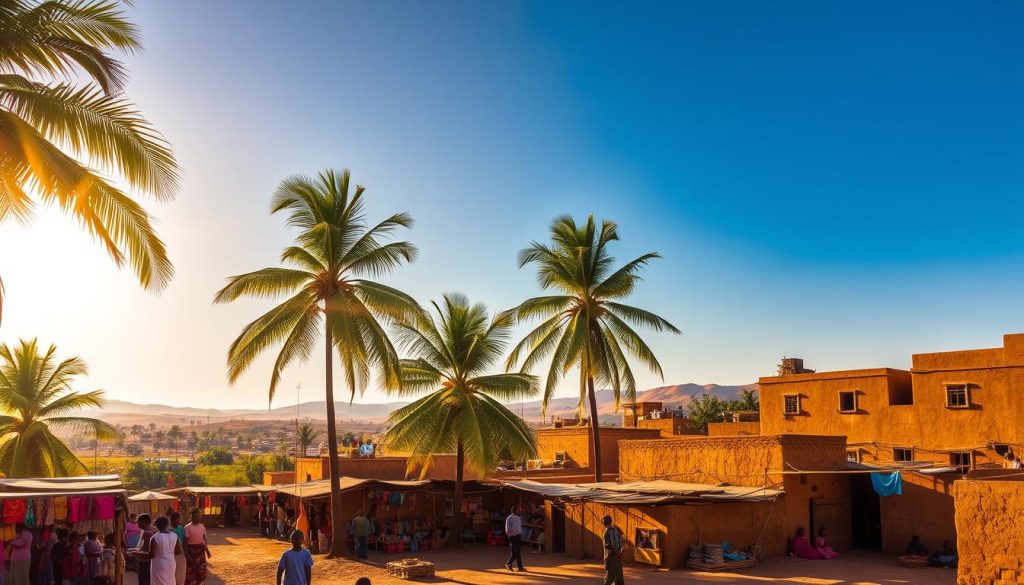
Best Time to Visit Togo and Seasonal Highlights
The best time to visit depends on your preferred activity. The dry season, from November to April, is ideal for exploring travel sites and outdoor adventures. The wet season, from April to October, brings lush greenery but can limit some activities.
| Season | Months | Highlights |
|---|---|---|
| Dry | November – April | Ideal for hiking, beach visits, and cultural festivals |
| Wet | April – October | Lush landscapes, fewer crowds, but occasional rain |
Plan your trip around these seasons to make the most of your visit. Whether you’re exploring markets or hiking to waterfalls, Togo promises unforgettable experiences.
Understanding Togo’s Currency System
When planning your trip, understanding the local currency system is essential for a smooth experience. The West African CFA Franc (XOF) is the official currency used in this country. It’s tied to the Euro at a fixed rate of 1 EUR = 655.957 XOF, ensuring stability in its value.
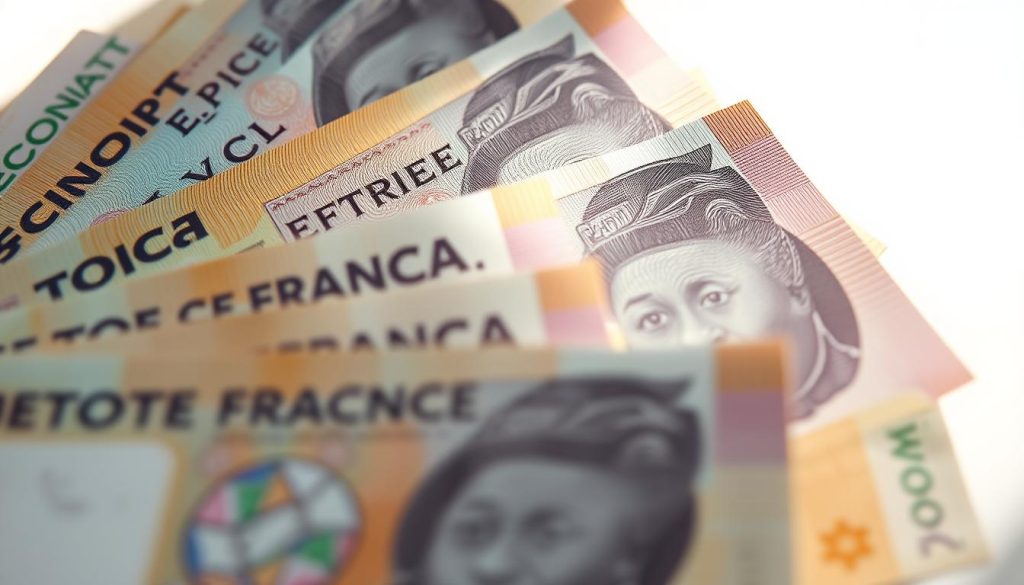
CFA Franc Denominations and Currency Composition
The CFA Franc comes in both coins and banknotes. Common banknote denominations include 500, 1,000, 2,000, 5,000, and 10,000 XOF. Coins are available in 1, 5, 10, 25, 50, 100, 200, and 500 XOF. This variety makes it easy to handle transactions, whether you’re shopping at a market or paying for a service.
Currency Restrictions and Duty-Free Allowances
There are specific rules for bringing cash in and out of the country. You can carry up to 1 million XOF (about $1,600) without declaring it. For larger amounts, you’ll need to provide documentation. Duty-free allowances for tourists include 200 cigarettes, 1 liter of spirits, and 50 ml of perfume.
Carrying the right amount of cash is crucial, especially in rural areas where card payments are rare. Keep smaller denominations handy for everyday purchases and tips. This practice ensures you’re prepared for any situation during your travel.
Togo: Ultimate Travelers Guide to Currencies & Payments
Understanding how the CFA Franc’s tie to the Euro affects your spending can make your trip more budget-friendly. The West African CFA Franc (XOF) is pegged to the Euro at a fixed rate of 1 EUR = 655.957 XOF. This stability ensures consistent exchange rates, but it also influences pricing for everyday services.

How the Euro Tie Shapes Pricing
The Euro tie impacts everything from hotel stays to restaurant meals. For example, a taxi ride in Lomé, the capital city, might cost around 2,000 XOF (about €3). Similarly, a meal at a local eatery could range from 3,000 to 5,000 XOF (€4.50 to €7.50). These prices are influenced by the Euro’s stability, which keeps them predictable for tourists.
“The fixed exchange rate between the CFA Franc and the Euro provides financial stability but can limit local spending power during economic fluctuations.”
Budgeting Tips for Travelers
To manage your expenses effectively, consider these strategies:
- Carry a mix of cash and cards. While cards are accepted in larger establishments, smaller markets and rural areas often require cash.
- Use travel-friendly cards like the Wise card, which offers low conversion fees and mid-market exchange rates.
- Monitor exchange rates before your trip to plan your budget accurately.
| Service | Average Cost (XOF) | Equivalent in EUR |
|---|---|---|
| Taxi Ride (City) | 2,000 | €3 |
| Restaurant Meal | 3,000 – 5,000 | €4.50 – €7.50 |
| Hotel (Per Night) | 20,000 – 50,000 | €30 – €75 |
By understanding the Euro tie’s impact, you can plan your spending wisely and enjoy a stress-free travel experience. Whether you’re exploring the vibrant city or relaxing on a serene beach, being informed ensures you get the most out of your trip.
Navigating Payment Methods and Banking in Togo
Managing your finances during your visit is easier when you know the available payment options. In this country, a mix of cash, cards, and traveler’s cheques ensures flexibility for every travel need.
Using Credit Cards, Traveler’s Cheques, and Cash Withdrawals
Credit cards like Visa, MasterCard, and American Express are accepted in larger establishments such as hotels and upscale restaurants. However, smaller markets and rural areas often require cash.
Traveler’s cheques are less common but can be exchanged at major banks. For convenience, ATMs in Lomé and other cities allow cash withdrawals. Always notify your bank before traveling to avoid card blocks.
Banking Hours and Currency Exchange Facilities
Banks in this country operate from Monday to Friday, 8:00 AM to 4:00 PM. Currency exchange bureaux are available in major cities and offer competitive rates. Plan your visits during these times to avoid delays.
For safety, avoid withdrawing large amounts of cash at night. Use ATMs located inside banks or secure areas. These practices ensure a smooth and secure travel experience.
Mastering Currency Exchange and Cash Strategies
Handling money wisely during your travels can make all the difference. Whether you’re exchanging foreign currency or managing import/export limits, having a clear plan ensures a smoother journey. This section provides practical tips to help you navigate these financial aspects with confidence.
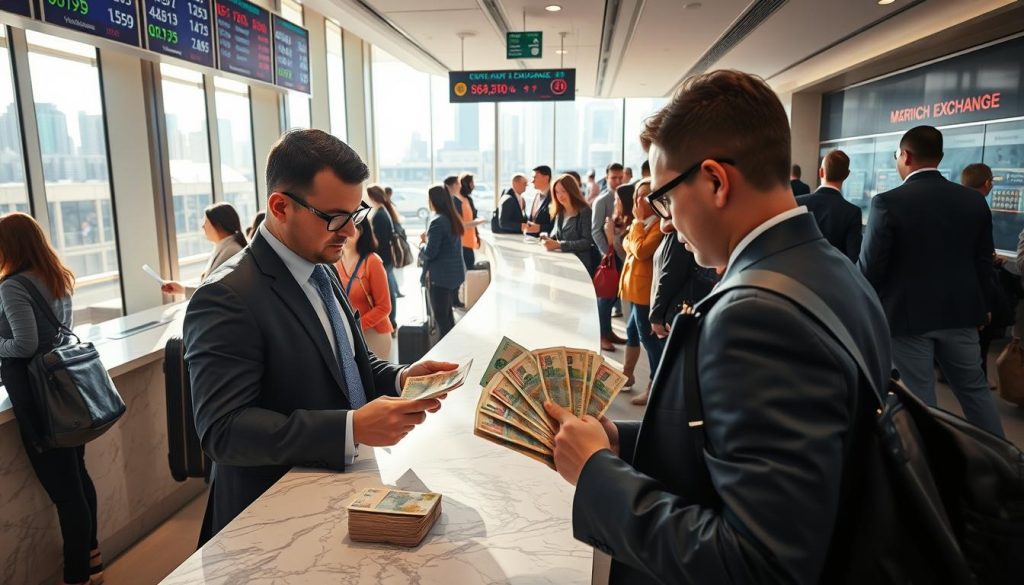
Best Practices for Exchanging Foreign Currency
Finding reputable currency exchange services is crucial. Banks and licensed bureaux de change are your safest options. Avoid unlicensed exchanges, as they may offer counterfeit money or hidden fees. Always compare rates to get the best deal.
Planning ahead is key. Exchange a portion of your money before your trip to avoid last-minute stress. Keep smaller denominations handy for everyday expenses. This ensures you’re prepared for any situation, whether you’re in a bustling city or a remote area.
Managing Import and Export Currency Limits
When entering or leaving the country, be aware of currency restrictions. You can carry up to 1 million XOF (about $1,600) without declaring it. For larger amounts, proper documentation is required. This rule applies to both local and foreign currencies.
Staying informed about these limits helps you avoid legal issues. If you’re unsure, consult your bank or a financial guide. This ensures a hassle-free experience during your travel.
“Always verify exchange rates and fees before making transactions to avoid unnecessary costs.”
By following these strategies, you can manage your finances effectively and focus on enjoying your trip. Whether you’re exploring new places or relaxing by the water, being prepared ensures a stress-free adventure.
Payment and Service Etiquette in Togo
Understanding local payment customs can enhance your travel experience and foster positive interactions. Knowing when and how much to tip, as well as navigating local customs, ensures smooth transactions and respectful exchanges.
Tipping Practices at Restaurants, Hotels, and Taxis
Tipping is a common practice in this country, but the amount varies depending on the service. In upscale restaurants, a tip of 10% is customary. For smaller eateries, rounding up the bill or leaving small change is appreciated.
In hotels, porters and housekeeping staff often expect a small gratuity. For taxi rides, rounding up the fare is standard. Always carry small denominations of cash, as it’s the preferred method for tipping.
Navigating Local Customs When Paying for Services
When paying for services, politeness goes a long way. Always greet the service provider before starting the transaction. In markets, bargaining is common, but remain respectful and avoid aggressive haggling.
For guided tours or special services, a tip of 5-10% is a thoughtful gesture. This shows appreciation for their effort and knowledge.
“A small gesture of gratitude can make a big difference in building positive connections during your travel.”
| Service | Tipping Practice |
|---|---|
| Restaurants (Upscale) | 10% of the bill |
| Restaurants (Local) | Round up or small change |
| Hotels | Small cash gratuity for staff |
| Taxis | Round up the fare |
| Guided Tours | 5-10% of the cost |
By following these guidelines, you can navigate payment and service etiquette with ease. Whether you’re dining out, staying in a hotel, or exploring the country, these practices ensure respectful and enjoyable interactions.
Essential Local Customs and Travel Tips
Navigating local customs and payment practices can greatly enhance your travel experience. Understanding how to handle money and interact respectfully ensures smoother transactions and positive interactions. This section provides practical advice to help you stay safe and informed during your journey.
Practical Advice for Handling Local Payments
When making payments, always verify exchange rates and use trusted money changers. In busy markets, keep your cash secure and avoid displaying large amounts. Smaller denominations are useful for everyday purchases and tips.
For larger transactions, use credit cards or traveler’s cheques. Notify your bank before traveling to avoid card blocks. ATMs in secure locations are a reliable option for withdrawing cash.
Techniques for Avoiding Currency Scams and Fraud
Stay alert during peak arrival times and in crowded tourist sites. Scammers often target visitors who appear unfamiliar with local customs. Always confirm the legitimacy of service providers and vendors before making payments.
Protect your personal information by avoiding unsecured Wi-Fi networks when accessing bank accounts. Monitor your statements regularly for unauthorized transactions.
“Being cautious and informed helps you avoid scams and enjoy a stress-free travel experience.”
| Tip | Action |
|---|---|
| Verify Exchange Rates | Use trusted money changers or banks |
| Secure Cash | Keep small denominations and avoid displaying large amounts |
| Protect Information | Avoid unsecured Wi-Fi for financial transactions |
| Monitor Statements | Check for unauthorized charges regularly |
By following these guidelines, you can navigate local customs and payment practices with confidence. Whether you’re exploring a bustling city or a serene beach, being prepared ensures a smooth and enjoyable trip.
Local Health, Safety, and Crisis Preparedness in Togo
Staying healthy and safe is a top priority when exploring new destinations. In this country, understanding the local healthcare system and being prepared for emergencies can make your trip smoother and more enjoyable. Here’s what you need to know to stay safe and healthy during your visit.
Understanding Medical Facilities and Health Precautions
Medical facilities in this country are limited, especially outside major cities. Hospitals like Lomé Hospital Sylvanus Olympio offer basic services, but standards may differ from what you’re used to. Many facilities require advance payments, so having cash on hand is essential.
Before your trip, ensure you’re up-to-date on vaccinations like yellow fever, hepatitis A, and typhoid. Carry personal medications in their original packaging, along with prescription details. This helps avoid issues at customs and ensures you have what you need in case of emergencies.
Ambulance services are limited, so having a plan for private transport to medical centers is crucial. Consider hiring a trusted driver or arranging transportation through your hotel.
Emergency Contacts and Travel Insurance Guidelines
In case of emergencies, knowing who to call can save valuable time. Key emergency numbers include:
- Police: 117
- Fire: 118
- Medical emergencies: Contact the nearest hospital directly.
Travel insurance is a must for any trip. Ensure your policy covers medical emergencies, evacuation, and unexpected costs. Verify that it includes coverage for pre-existing conditions if applicable.
“Having comprehensive travel insurance ensures you’re protected in case of unforeseen health issues or emergencies.”
By taking these precautions, you can focus on enjoying your journey with peace of mind. Whether you’re exploring bustling cities or serene landscapes, being prepared ensures a safe and memorable experience.
Conclusion
Preparing for your journey involves more than just packing; it’s about understanding the financial and cultural landscape. Managing money wisely, from exchanging currency to budgeting, ensures a smoother experience. Carry a mix of cash and cards, and always verify exchange rates to avoid unnecessary costs.
Understanding local customs, like tipping etiquette, fosters positive interactions. Being aware of healthcare options and emergency protocols adds an extra layer of safety. Thorough preparation allows you to focus on enjoying the rich culture and stunning landscapes of this vibrant country.
Use this guide as your companion to navigate the financial and practical aspects of your trip. Stay informed, stay prepared, and most importantly, enjoy every moment of your travel adventure.
The above is subject to change.
Check back often to TRAVEL.COM for the latest travel tips and deals.
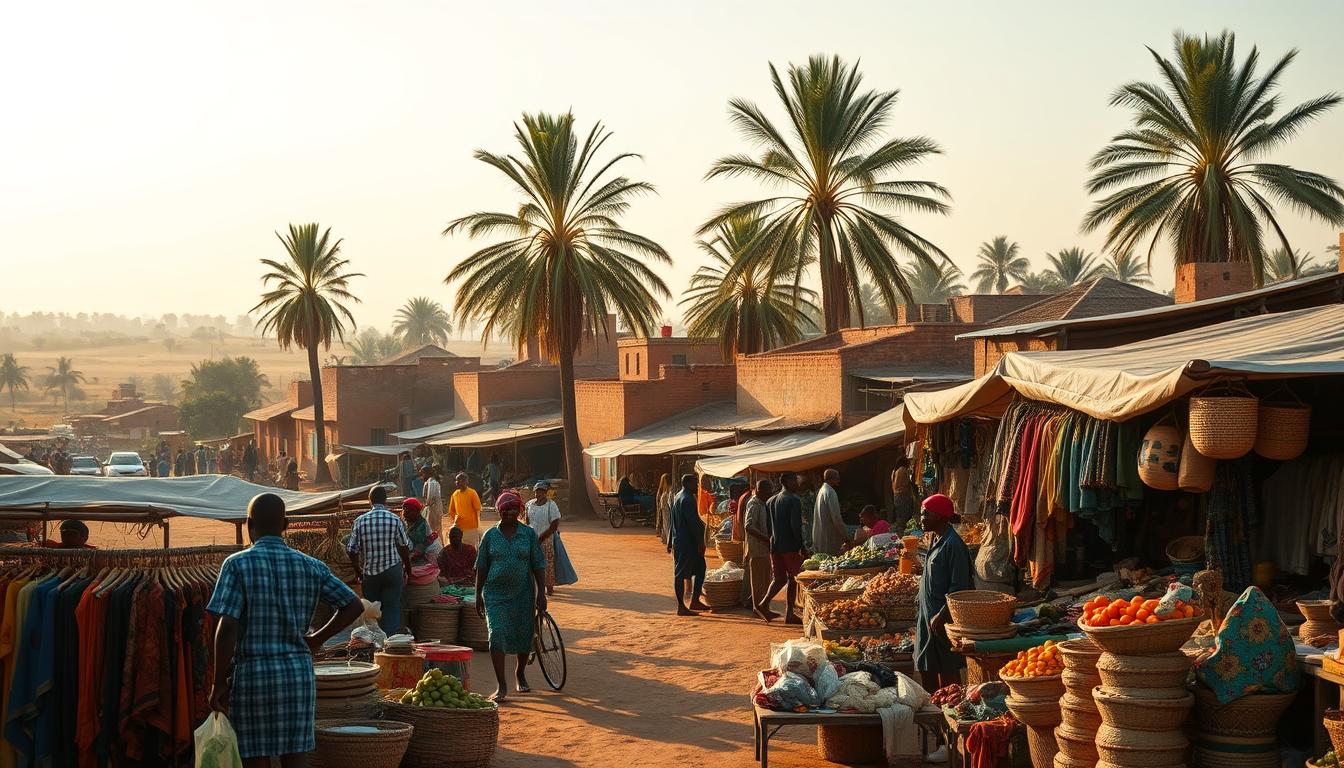
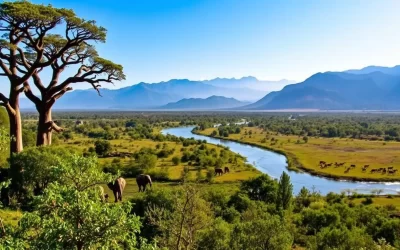
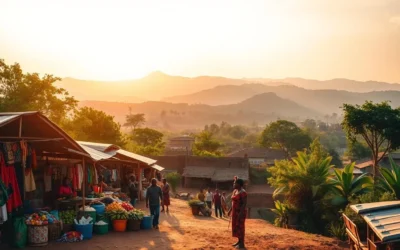
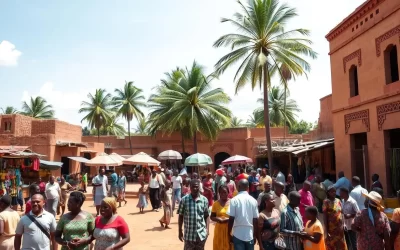
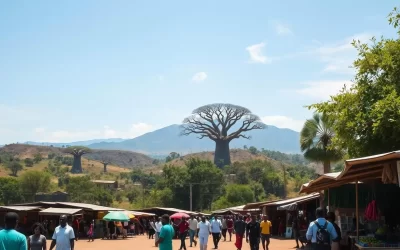
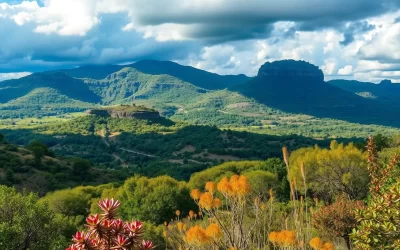
0 Comments